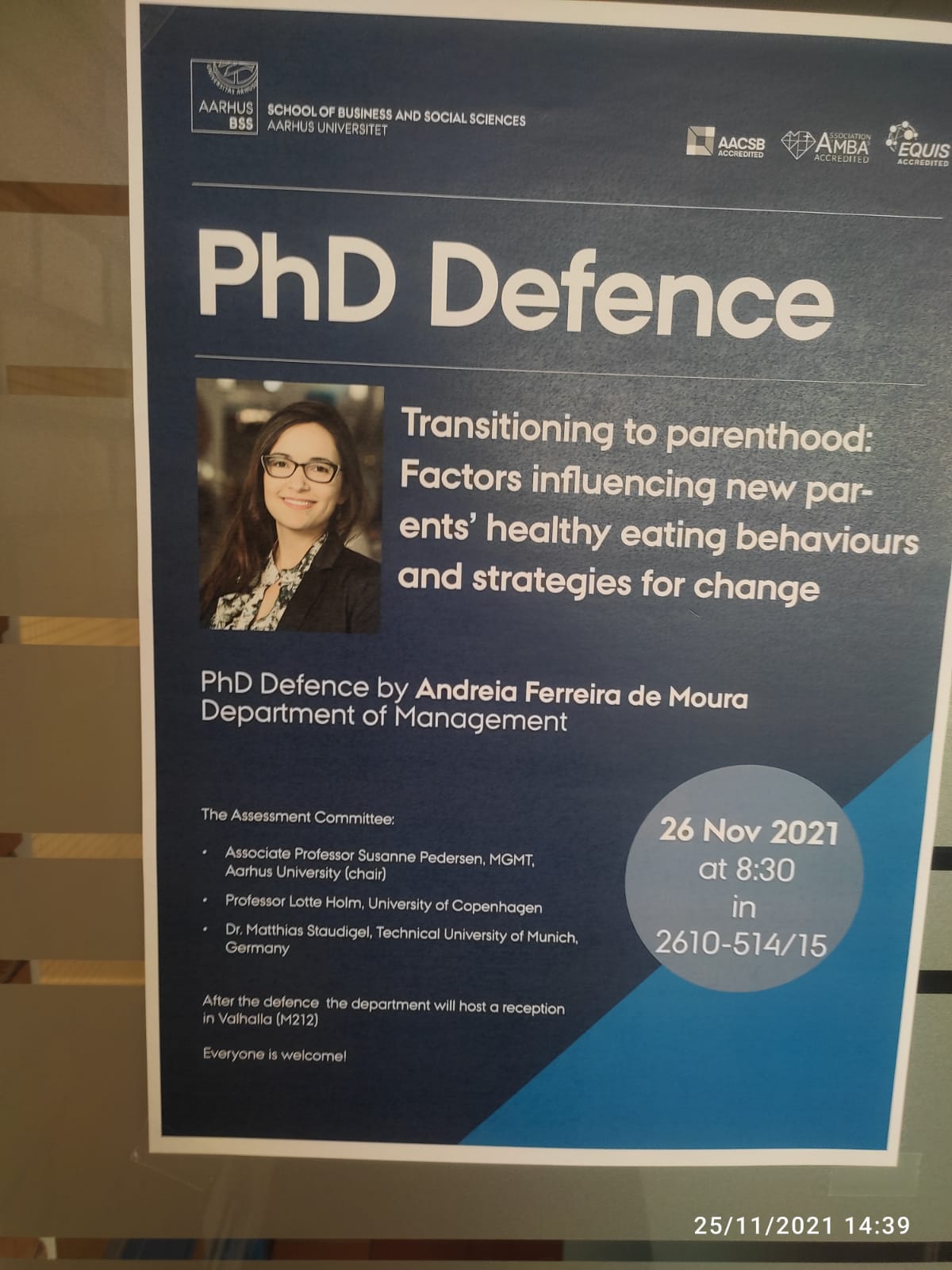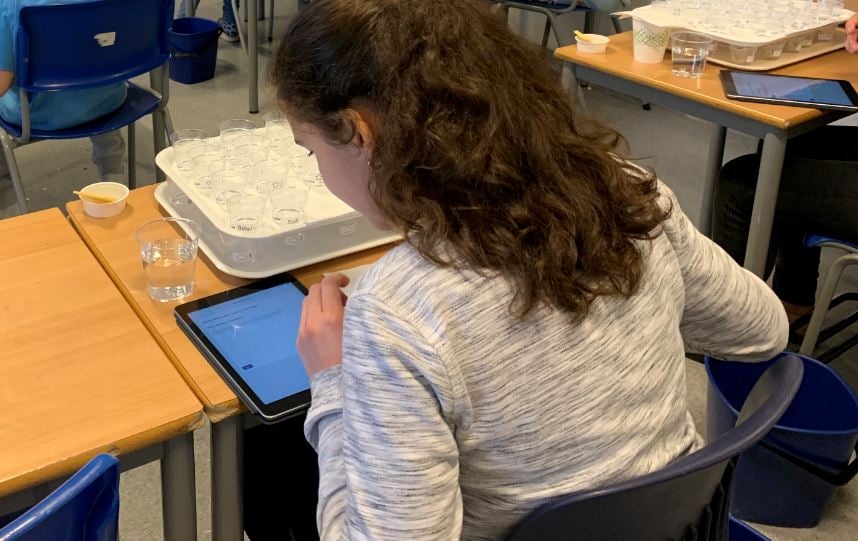
Another PhD defence among the ESRs! Andreia F. Moura, ESR8, successfully defended the thesis: “Transitioning to parenthood: Factors influencing new parents’ healthy eating behaviours and strategies for change” on November 26. The defence took place in her home institution, Aarhus University – Denmark, and was celebrated with colleagues, supervisors (Jessica Aschemann-Witzel and Alice Grønhøj) and…

In Autumn, 2020, Europe was hit by the second wave of Covid-19 with remarkable numbers of infected cases reported daily. As such, many social activities were again restricted and banned. This restriction significantly impacted Ervina (ESR2) who was planning to conduct her sensory study with preadolescent subjects. The study required her to physically meet children…

Children have different perceptions on how they respond to taste. For example, the same concentration of bitter and sour tastes contained in one glass of grapefruit juice could be perceived differently. One child may perceive that bitterness is stronger than sourness while the other may perceive a stronger sour than bitter taste. There are also…

Studies investigating the associations between taste sensitivity and eating behaviour in preadolescent children are still limited. Ervina, ESR2 has peeked into this association by involving 69 children-parents-dyad responses in her study. Her main objective was to explore the association between children’s basic taste sensitivity and their eating behaviour. Children’s taste sensitivity was measured using the…

Here is preliminary program for the final Edulia conference, for more details on the conference, please follow this link Changes in the program may occur. Tuesday 21st June 0900 – 0930 Registration and Coffee/tea 0930 – 0945 Welcome Address from Coordinator and host institution. Paula Varela (Nofima, The Norwegian Institute of Food, Fisheries and Aquaculture Research, Norway)…

November the 17th, Tija Rageliene (ESR9) defended her thesis “Peer, sibling and social media influence on preadolescent children’s healthy eating behaviour” at Arhus University (School of Business and Social Sciences Department of Management). Her research objective has been to explore the influence of peers, siblings, and social media on preadolescent children’s healthy eating behaviour. She…

Ervina (ESR2) defended recently her thesis entitled “Taste sensitivity and food liking in pre-adolescent children”. In this research she has investigated variability in taste sensitivity in pre-adolescent children and tried to link this to food liking. She as applied different tools for measuring taste sensitivity (taste responsiveness, detection and identification threshold as well as response…

Earlier this year Ervina (ESR2) and co-workers published a study on the relationship between taste responsiveness and food liking in pre-adolescents. Taste responsiveness is one of several methods for investigating differences in taste sensitivity, i.e. that different subjects perceive the same sample as more or less intense in a specific taste, for instance sweet or…

A big congratulation to Kaat Philippe who Friday 22.10.2021 defended her thesis in psychology. The thesis was entitled “Maternal and paternal feeding practices: links with young children’s eating behaviours and influencing factors. a systemic approach” A summary of her thesis, can be found here (both in English and French). Supervisors: Dr. Sandrine Monnery-Patris and Dr.…

On the 25th of October, Abigail Pickard defended her thesis “Spilling the beans: The development of conceptual knowledge about food and its links with food rejection in young children (3-7-years-old)” . She has investigated how cognitive mechanisms play a role in acceptance or rejecting foods. We congratulate on the excellent work, and wish her well…










